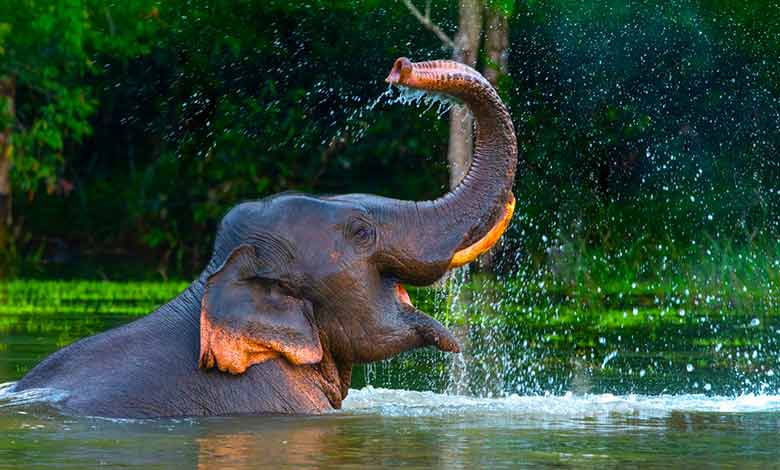Elephants have earned a big reputation for remembering places, migratory patterns, and voice differences. There’s some evidence to show that they can even hold a grudge. But is it true they never forget? Elephants have arguably one of the most intelligent brains in the animal kingdom.
Scientists often place them up there with dolphins and even apes. There are three distinct living species of elephant, two in Africa and one in Asia. Each species have different advantages and disadvantages.
Elephants are one of the few species that can recognize their reflection. They have shown impressive emotional intelligence. Also, they perform consolation behavior, reassuring others in distress through soothing vocalizations and comforting gestures with their trunks.
They also help each other in times of need and even appear to mourn the death of friends and family like humans. Elephants are masters of their environment. They can hear a rainstorm a hundred and fifty miles away, picking up on the ultra-low frequencies. They’ve also been seen to self-medicate.
Why does an elephant never forget?
Elephants have a relatively high and impressive encephalization quotient. A higher encephalization quotient means the brain is bigger than the size expected for an animal of its size. Elephants have an EQ of about 1.88. Humans have an EQ of about 7, rats about 0.4, and pigs about 0.27. It shows that elephants have a relatively high EQ, strengthening their memory.
Moreover, an incident in Tennessee even proved this fact. Two elephants, Jenny and Shirley, were together for a few months in a circus. When they reunited after 23 years, they became excited and started bellowing. It indicates that they remembered each other. Also, studies have shown that elephants remember the way to water sources even after a long period.
On average, elephant brains are three times the size of human brains. Like us, they have complex neural networks and more neurons than humans: 257 billion to our mere 86 billion. However, size alone doesn’t predict intelligence or memory. It depends on where in the brain the neurons are.
- In the case of elephants, almost 98% of their neurons are stored in their cerebellum.
This region sits in the back of the brain. It is thought to be linked to motor skills and sensory input. That means it’s in charge of handling an elephant’s massiveness. Their trunks alone have over one hundred thousand bundles of muscle fibers! A larger animal often requires a larger brain.
There’s more skin, muscle, and more of everything! Outside of their impressive cerebellum, they don’t have a very robust cerebral cortex (an area of the brain often linked to higher intelligence). But some can problem-solve with tools, and others have even been observed to recognize friends, family, food routes, and enemies.
Asian elephants, specifically, have been known to exhibit self-awareness in mirrors. Both African and Indian elephants have a unique set of neurons called VENs. They are believed to mediate social-empathic behaviors, and humans also have these! But even though elephants are incredible animals, the human brain is far more densely populated with neural networks. They could represent a different type of cognitive structure.
Scientists speculate the elephant brain favors the “widespread interconnectivity” of distant regions rather than the proximity of clustered ones. Their neurons are farther apart than humans. Some elephants travel in packs as small as 8 or as large as 100 individuals.
The experiences of a herd make them wiser. That wisdom is passed on to younger generations. Herds are matriarchy, meaning female elephants. Usually, the eldest leads the group. Since elephants can reach 60 to 80 years old, many years of information can be useful.
For example, in 1993, Tanzania had one of the worst droughts in recent history. Places where water was normally abundant dried up, and groups with older females. They lived through previous droughts and moved to locations with a greater chance of water, while those headed by younger matriarchs stayed behind. The younger herds lost more calves within nine months than the elder groups. But the memory of droughts isn’t the only thing elephants can also remember about friends and foes.
Another study was conducted where elephants listened to recordings of men from the Masai (a group known to kill elephants to protect grazing land) and recordings from the Kamba tribe, who don’t bother elephants much.
Even though both tribes repeated the exact phrase in the recording, most elephants acted much more defensively when the Masai recording was played! So a herd with a matriarch with experience with Masai might turn her herd away if she recognizes their language, ultimately saving her herd from harm.
More Articles:
